Abarth 500 595 695 vs Peugeot 3008 – Performance, range & efficiency compared
Two cars, one duel: Abarth 500 595 695 meets Peugeot 3008.
Which one wins in performance, efficiency and value for money? Find out now!
Costs and Efficiency:
When it comes to price and running costs, the biggest differences usually appear. This is often where you see which car fits your budget better in the long run.
Abarth 500 595 695 has a barely noticeable advantage in terms of price – it starts at 32600 £, while the Peugeot 3008 costs 35100 £. That’s a price difference of around 2580 £.
In terms of energy consumption, the advantage goes to the Peugeot 3008: with 16.90 kWh per 100 km, it’s slight more efficient than the Abarth 500 595 695 with 17.10 kWh. That’s a difference of about 0.20 kWh.
As for range, the Peugeot 3008 performs clearly better – achieving up to 698 km, about 433 km more than the Abarth 500 595 695.
Engine and Performance:
Under the bonnet, it becomes clear which model is tuned for sportiness and which one takes the lead when you hit the accelerator.
When it comes to engine power, the Peugeot 3008 has a clearly edge – offering 325 HP compared to 155 HP. That’s roughly 170 HP more horsepower.
In acceleration from 0 to 100 km/h, the Peugeot 3008 is somewhat quicker – completing the sprint in 6 s, while the Abarth 500 595 695 takes 7 s. That’s about 1 s faster.
In terms of top speed, the Peugeot 3008 performs noticeable better – reaching 220 km/h, while the Abarth 500 595 695 tops out at 155 km/h. The difference is around 65 km/h.
There’s also a difference in torque: Peugeot 3008 pulls convincingly stronger with 511 Nm compared to 235 Nm. That’s about 276 Nm difference.
Space and Everyday Use:
Beyond pure performance, interior space and usability matter most in daily life. This is where you see which car is more practical and versatile.
Seats: Peugeot 3008 offers a bit more seating capacity – 5 vs 4.
In curb weight, Abarth 500 595 695 is slightly lighter – 1410 kg compared to 1648 kg. The difference is around 238 kg.
In terms of boot space, the Peugeot 3008 offers clearly more room – 520 L compared to 185 L. That’s a difference of about 335 L.
In maximum load capacity, the Peugeot 3008 performs decisively better – up to 1480 L, which is about 930 L more than the Abarth 500 595 695.
When it comes to payload, Peugeot 3008 to a small extent takes the win – 467 kg compared to 385 kg. That’s a difference of about 82 kg.
Who wins the race?
The Peugeot 3008 proves to be leaves the rival little chance and therefore becomes our DriveDuel Champion!
Peugeot 3008 is the better all-rounder in this comparison.
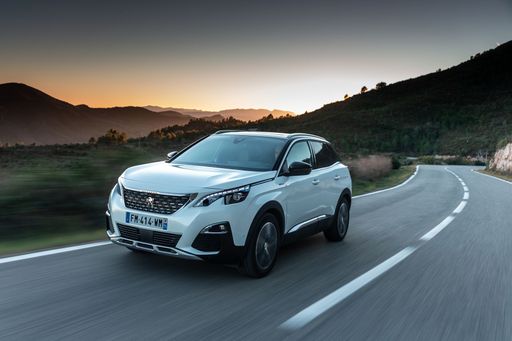 @ Peugeot / Stellantis Media
@ Peugeot / Stellantis Media
Peugeot 3008
Abarth 500 595 695
The Abarth 500, particularly in its 595 and 695 renditions, captures the spirit of Italian motoring with its compact yet aggressive design. Known for its lively performance and distinctive styling, this little powerhouse is a joy to drive, offering an engaging experience that appeals to enthusiasts. With its rich motorsport heritage, the Abarth 500 embodies the essence of fun and excitement on both the streets and the race track.
details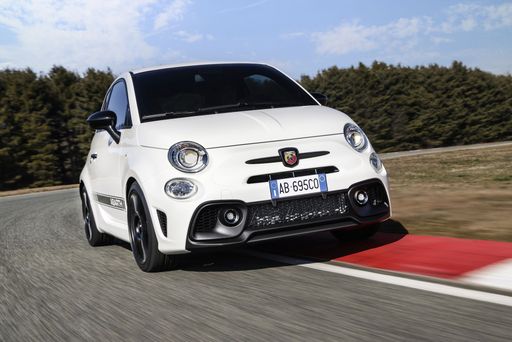 @ Abarth / Stellantis Media
@ Abarth / Stellantis Media
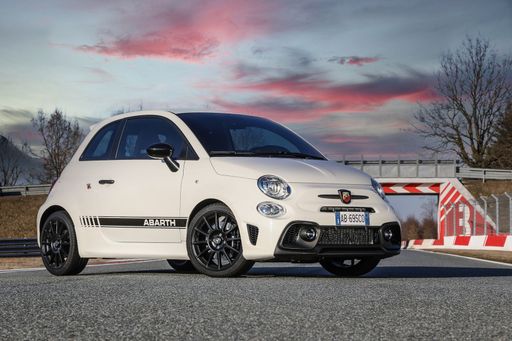 @ Abarth / Stellantis Media
@ Abarth / Stellantis Media
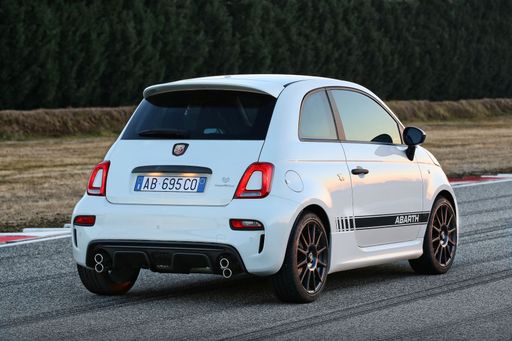 @ Abarth / Stellantis Media
@ Abarth / Stellantis Media
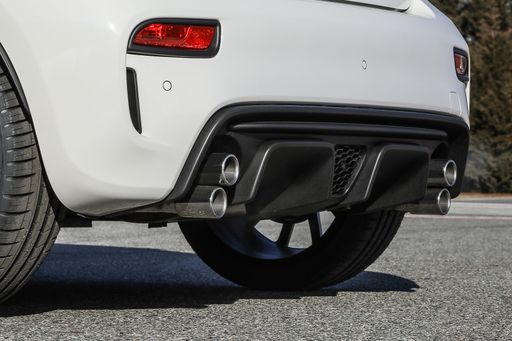 @ Abarth / Stellantis Media
@ Abarth / Stellantis Media
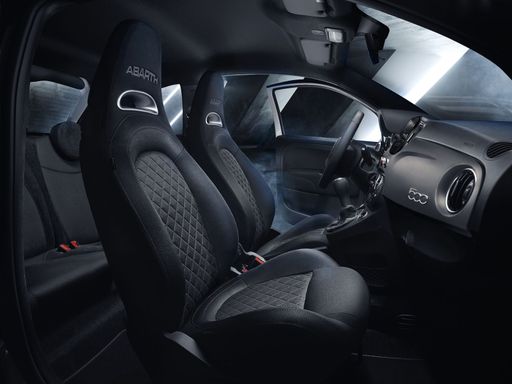 @ Abarth / Stellantis Media
@ Abarth / Stellantis Media
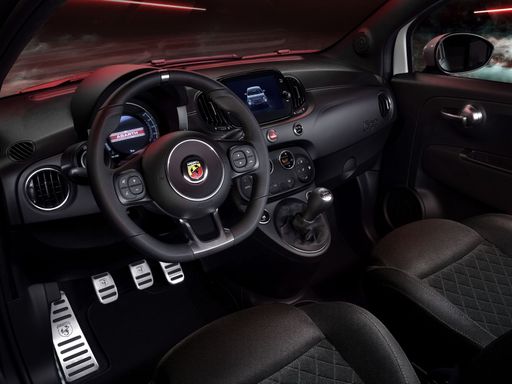 @ Abarth / Stellantis Media
@ Abarth / Stellantis Media
Peugeot 3008
The Peugeot 3008 is a compact SUV that seamlessly combines sleek design with modern functionality. Its interior offers a sophisticated and comfortable driving experience, characterised by high-quality materials and innovative technology features. With its dynamic performance and stylish aesthetics, the 3008 stands out in the competitive world of family SUVs.
details @ Peugeot / Stellantis Media
@ Peugeot / Stellantis Media
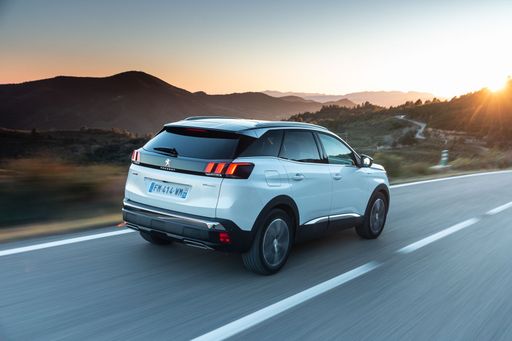 @ Peugeot / Stellantis Media
@ Peugeot / Stellantis Media
 @ Peugeot / Stellantis Media
@ Peugeot / Stellantis Media
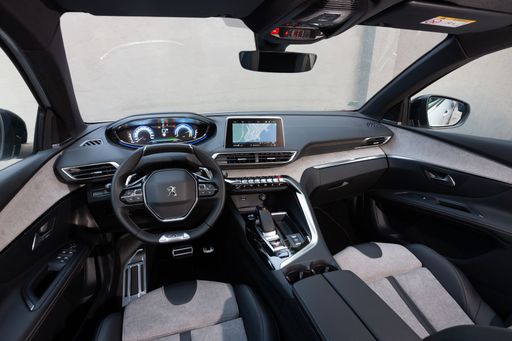 @ Peugeot / Stellantis Media
@ Peugeot / Stellantis Media
 @ Abarth / Stellantis Media
@ Abarth / Stellantis Media
|
 @ Peugeot / Stellantis Media
@ Peugeot / Stellantis Media
|
|
|
|
Costs and Consumption |
|
|---|---|
|
Price
32600 - 39400 £
|
Price
35100 - 51400 £
|
|
Consumption L/100km
-
|
Consumption L/100km
0.9 - 5.4 L
|
|
Consumption kWh/100km
17.1 - 18.8 kWh
|
Consumption kWh/100km
16.9 - 17.8 kWh
|
|
Electric Range
242 - 265 km
|
Electric Range
85 - 698 km
|
|
Battery Capacity
37.80 kWh
|
Battery Capacity
0.4 - 96.9 kWh
|
|
co2
0 g/km
|
co2
0 - 121 g/km
|
|
Fuel tank capacity
-
|
Fuel tank capacity
55 L
|
Dimensions and Body |
|
|---|---|
|
Body Type
Hatchback
|
Body Type
SUV
|
|
Seats
4
|
Seats
5
|
|
Doors
3
|
Doors
5
|
|
Curb weight
1410 - 1435 kg
|
Curb weight
1648 - 2337 kg
|
|
Trunk capacity
185 L
|
Trunk capacity
470 - 520 L
|
|
Length
3673 mm
|
Length
4542 mm
|
|
Width
1682 mm
|
Width
1895 mm
|
|
Height
1518 mm
|
Height
1641 mm
|
|
Max trunk capacity
550 L
|
Max trunk capacity
1430 - 1480 L
|
|
Payload
370 - 385 kg
|
Payload
383 - 467 kg
|
Engine and Performance |
|
|---|---|
|
Engine Type
Electric
|
Engine Type
Plugin Hybrid, Electric, Petrol MHEV
|
|
Transmission
Automatic
|
Transmission
Automatic
|
|
Transmission Detail
-
|
Transmission Detail
Dual-Clutch Automatic, Reduction Gearbox
|
|
Drive Type
Front-Wheel Drive
|
Drive Type
Front-Wheel Drive, All-Wheel Drive
|
|
Power HP
155 HP
|
Power HP
145 - 325 HP
|
|
Acceleration 0-100km/h
7 s
|
Acceleration 0-100km/h
6 - 10.2 s
|
|
Max Speed
155 km/h
|
Max Speed
170 - 220 km/h
|
|
Torque
235 Nm
|
Torque
230 - 511 Nm
|
|
Number of Cylinders
-
|
Number of Cylinders
3 - 4
|
|
Power kW
114 kW
|
Power kW
107 - 239 kW
|
|
Engine capacity
-
|
Engine capacity
1199 - 1598 cm3
|
General |
|
|---|---|
|
Model Year
2023
|
Model Year
2024 - 2025
|
|
CO2 Efficiency Class
A
|
CO2 Efficiency Class
B, A, D
|
|
Brand
Abarth
|
Brand
Peugeot
|
Is the Abarth 500 595 695 offered with different drivetrains?
The Abarth 500 595 695 is offered with Front-Wheel Drive.
The prices and data displayed are estimates based on German list prices and may vary by country. This information is not legally binding.
